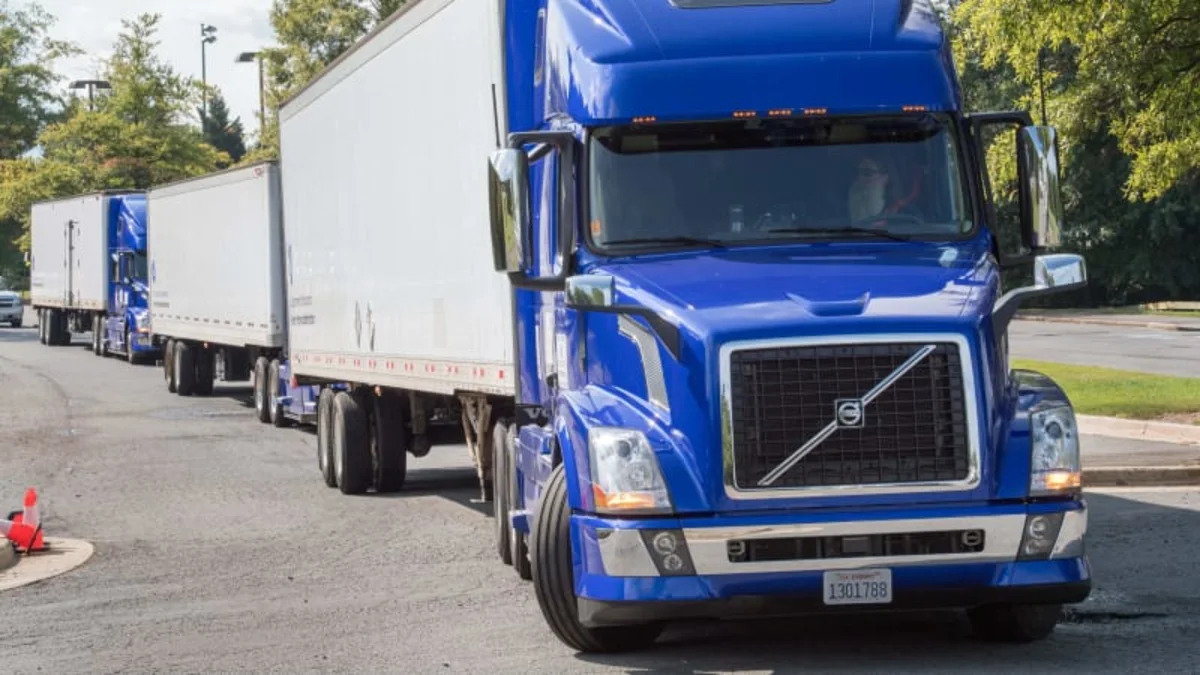German automaker Daimler AG's trucks division said it would test a new technology called "platooning" on U.S. roads, allowing large digitally-connected trucks to save fuel by driving closely together, with one vehicle following the other.
Daimler's announcement, and promises on Monday by rivals Navistar International Corp and Volkswagen AG to field a medium duty electric truck by 2019, highlight a race among global commercial truck makers to deploy new technology both to anticipate regulatory mandates and influence policy debates.
Trucking industry executives are gathering this week at the North American Commercial Vehicle show in Atlanta as the U.S. medium and heavy truck market is emerging from a slump.
"We definitely are leaving 2017 with nice momentum," Martin Daum, chief of Daimler's commercial truck business, told Reuters on Monday.
The sales recovery is lifting share prices of companies in the commercial truck sector. But in a reflection of the digital fever that is gripping the consumer auto business, truck makers are using the trade show to highlight products that are a tiny part of today's business, or not yet for sale.
Platooning technology is one example. Daimler's North American truck unit said on Monday it received permission from the Oregon Department of Transportation to test its platooning technology on public roads after successful trials in its proving ground in Madras, Oregon.
In truck platooning, connectivity and automated driving improve safety within the vehicle convoys, support drivers and enhance efficiency with closer distances between the connected trucks, the company said, allowing them to draft off each other.
For now, Daum said, platooning offers the promise of improved fuel efficiency. Fleet operators will not get the full pay back for investments in the technology until regulations allow one driver to pilot a truck while drivers in the trucks behind sleep, and that is "a long way out," Daum said.
Being able to keep trucks and cargo moving without having to stop for mandated rest breaks "would unleash a huge efficiency potential," Daum said. "We don't have the technical solution yet."
Some companies, including Silicon Valley startup Peloton Technology, are working on this technology. Peloton is working with several truck makers, including Volvo, on its platooning system, which it sees as a precursor to autonomous systems.
Tesla, which has been a leader in developing self-driving technology for its luxury cars, is developing a long-haul, electric semi-truck that can drive itself and move in "platoons," Reuters reported last month.
Reporting by Joseph White
Related Video:


Sign in to post
Please sign in to leave a comment.
Continue